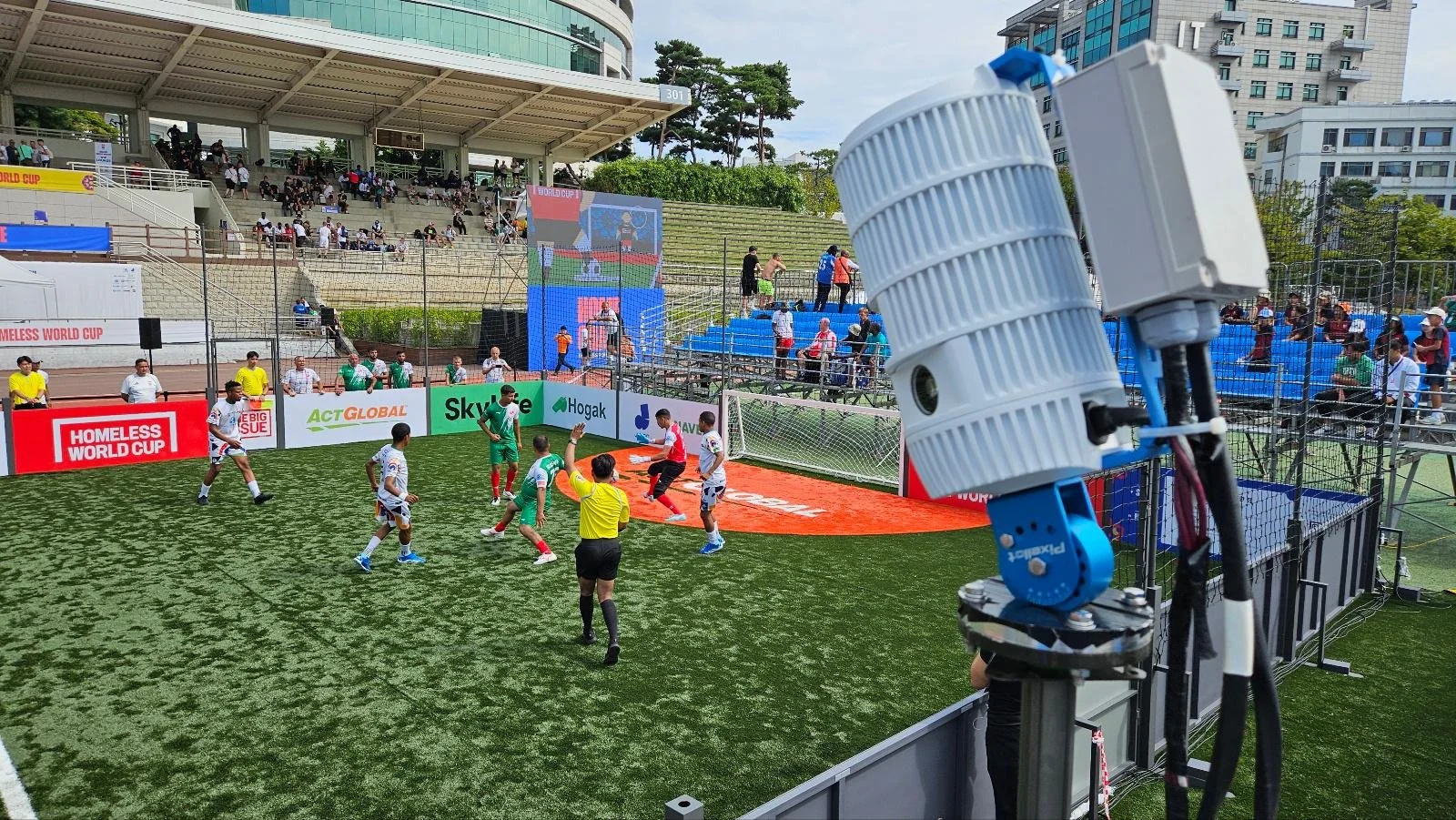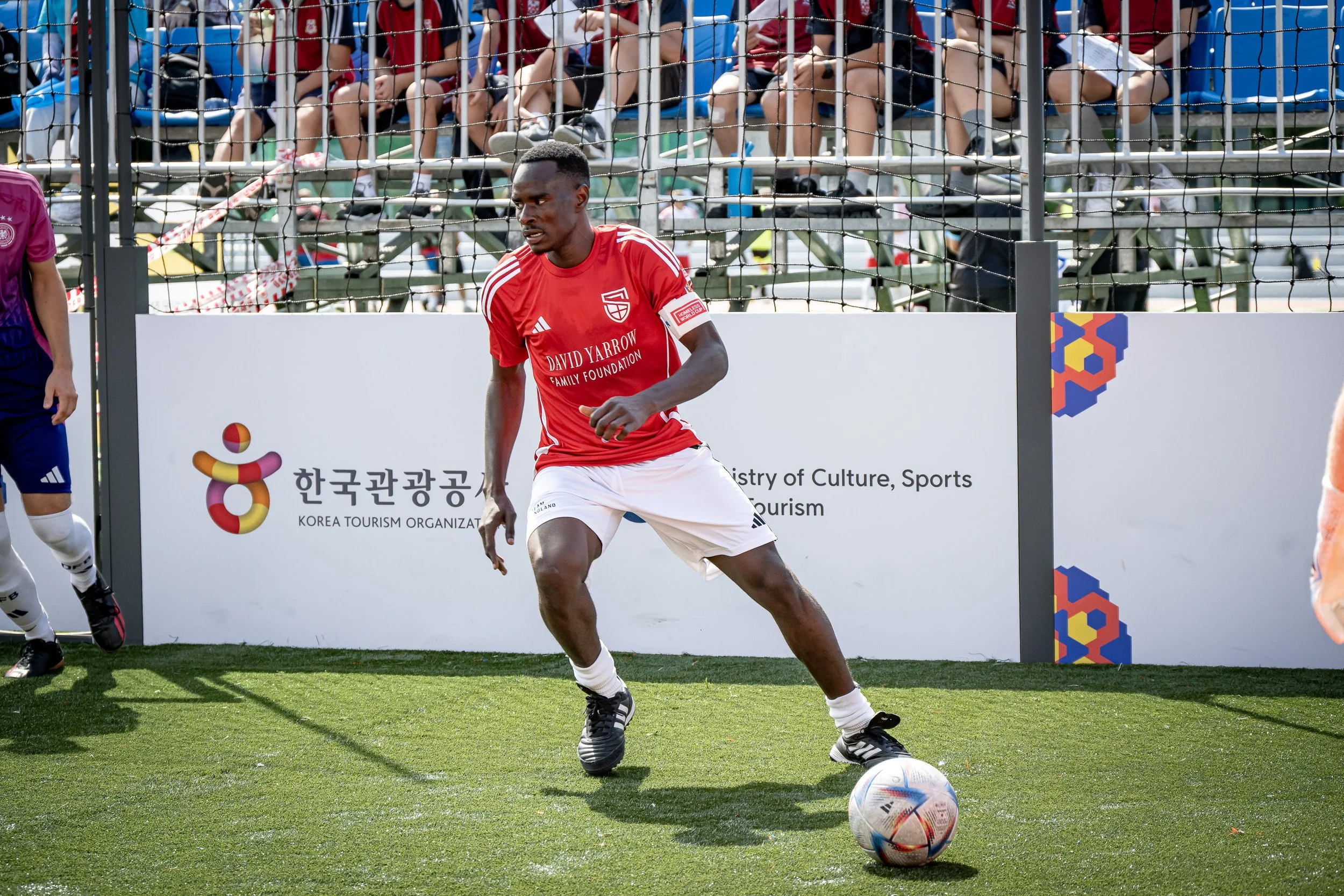How AI Technology revolutionised sports broadcasting at the seoul 2024 Homeless World Cup at hanyang university
| Hogak's innovative AI camera system in action at the Seoul 2024 Homeless World Cup |
Artificial Intelligence (AI) is breaking new ground transforming many services, including sports broadcasting and none more so that at this year’s Seoul 2024 Homeless World Cup.
The company at the heart of this transformation in Seoul is Hogak, an AI-powered sports broadcasting company. As a key partner in the Seoul 2024 Homeless World Cup, Hogak gained plaudits and attention for delivering its AI-driven live stream to a global audience, including audiences on FIFA+ for the first time in the Foundation’s history.
The company’s involvement in the event highlights the growing role of technology in sports media, aligning with the Homeless World Cup’s mission to raise awareness and support for marginalised communities.
Hogak’s innovative AI camera system (Pixellot) uses unmanned cameras to track player movements in real time, automatically capturing and editing the footage.
This cutting-edge technology has enabled the Seoul 2024 Homeless World Cup to reach a global audience efficiently and cost-effectively, making the tournament more accessible than ever. The ability to deliver high-quality broadcasts with minimal staff not only reduces costs but also opens up opportunities for sports that have historically been underrepresented in mainstream media.
In an interview with Jonghoon Yun, Hogak’s Executive Director, Yun emphasised the success that was achieved between the two organisations last week in Seoul and the importance of utilising AI technology to bring attention to sports and events like the Seoul 2024 Homeless World Cup:
“AI broadcasting systems can offer new opportunities for amateur sports or inspiring events like the Homeless World Cup,” Yun explained. “The Hogak system has allowed the tournament to be broadcast on FIFA+ globally and across many platforms locally in Korea, ensuring that the impactful stories of the players can reach a wide audience but also the fantastic football that was played at Hanyang University has been enjoyed by millions of people worldwide.”
| Jonghoon Yun at the Seoul 2024 Homeless World Cup |
Image: Angelica Ibarra Rodriquez
Hogak’s mission to support underrepresented groups, including women’s sports and lower-league competitions, is in line with the Homeless World Cup’s broader vision of inclusivity and social impact. The platform’s ability to stream content that might otherwise go unnoticed speaks to a larger effort to democratise sports media and spotlight unheard stories.
Much like its intended mission, Hogak and its company name represent a blend of traditional and modern elements. Originating from the Chinese characters for ‘whistle’; and ’horn’, the name symbolises the power of a whistle to signal both the start and end of a game.
Jonghoon Yun, Hogak’s Executive Director, also added:
“The partnership between Hogak and the Seoul 2024 Homeless World Cup shows how technology and sport can come together to create social change. Through AI-powered broadcasts, Hogak is not only helping to vocalise the stories of the amazing homeless athletes who played in Seoul last week but also positively contributing to a larger narrative of hope and empowerment. By making these stories accessible to a global audience, Hogak is ensuring that the Homeless World Cup’s impact extends far beyond just the pitch and hopes to inspire millions around the world”
|Games at the Seoul 2024 Homeless World Cup were broadcast on FIFA+ thanks to the support from Hogak | Image: Anita Milas
Commenting on the partnership ,Matthew Williams, Head of Communications at the Homeless World Cup Foundation said:
“We were delighted with how successful the broadcast went this week in Seoul. Our tournament was streamed across the globe thanks to KT SkyLife and Hogak’s AI solutions - the first time a Homeless World Cup tournament has utilised AI and AI technology.
“The team on the ground from Hogak worked tirelessly all week to ensure our global audiences could watch and enjoy the fantastic football on show at Hanyang Univeristy. It was a huge success.”
Words: Dahyun Lee
Images: Angelica Ibarra Rodriguez / Anita Milas



